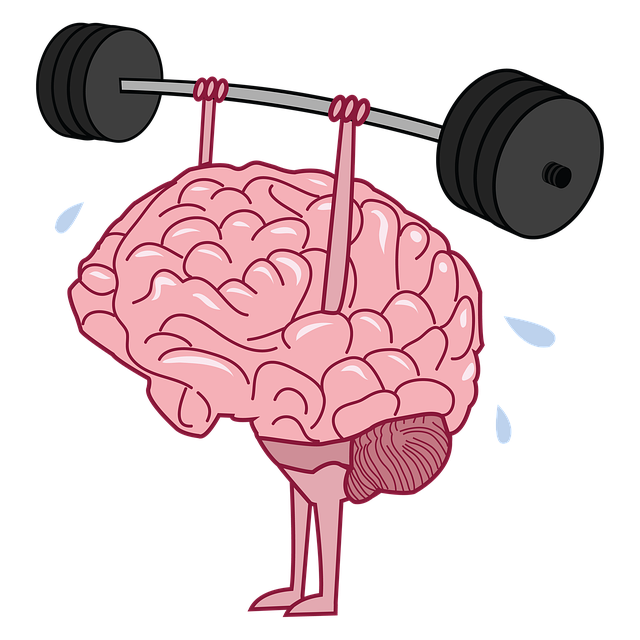Longmont Trauma Therapy focuses on positive thinking as a powerful tool for mental health improvement and trauma healing. By identifying and replacing negative thought patterns, individuals gain resilience and emotional well-being. A structured Positive Thinking Exercise Routine, incorporating practices like journaling and mindfulness, aids in cultivating optimism and reducing anxiety. This therapeutic approach, emphasizing cultural sensitivity and personalized care, promotes long-term positive thinking and mental health management for diverse populations.
“Unleash your mind’s power with Longmont Trauma Therapy’s guide to positive thinking exercises. Discover how cultivating optimism can transform mental health and overall well-being. This comprehensive approach delves into identifying negative thought patterns and offers practical strategies for a positive mindset shift. Learn to incorporate mindfulness and gratitude into daily routines, track progress, and sustain positive thinking long-term. Embrace the journey towards a happier, healthier you.”
- Understanding Positive Thinking and Its Impact on Mental Health
- Identifying Negative Thought Patterns: A Step Towards Change
- Developing a Positive Thinking Exercise Routine
- Incorporating Mindfulness and Gratitude in Daily Life
- Tracking Progress and Sustaining Positive Thinking Long-Term
Understanding Positive Thinking and Its Impact on Mental Health

Positive thinking is a powerful tool that can significantly impact mental health and overall well-being. It involves cultivating a mindset focused on optimism, gratitude, and positive self-talk, which has been linked to numerous psychological benefits. When individuals embrace positive thinking exercises, they engage in a process that enhances their ability to navigate life’s challenges with resilience. Research suggests that this practice can reduce symptoms of anxiety and depression, improve coping strategies, and boost overall life satisfaction.
In the context of Longmont Trauma Therapy, positive thinking becomes an essential component of healing. By encouraging clients to reframe negative thoughts and emotions, therapists support the development of healthier cognitive patterns. This approach helps individuals cope with traumatic experiences and promotes emotional well-being promotion techniques that can be integrated into daily routines. Mental health awareness is heightened when people understand how their thoughts influence their moods and embrace positive thinking as a viable mood management strategy.
Identifying Negative Thought Patterns: A Step Towards Change

Negative thought patterns are often subtle yet powerful barriers to our well-being and personal growth. The first step in implementing a positive thinking exercise is to become aware of these patterns. Many people, especially those who have experienced trauma, like those seeking Longmont Trauma Therapy, may find that their minds frequently wander to negative or distorted thoughts. These could manifest as all-or-nothing thinking, catastrophizing, or excessive self-criticism. Identifying and recognizing these thought patterns is a powerful tool for change.
Understanding our tendency towards negative thinking is crucial. It allows us to develop strategies to challenge and replace these unhelpful thoughts with more realistic and positive ones. Healthcare providers, especially those undergoing Cultural Competency Training, can greatly benefit from this process, as it enhances their ability to support clients in managing mental health risks. Similarly, mental health professionals should focus on emotional regulation techniques, which often involve recognizing and transforming negative thought cycles into healthier, more balanced perspectives.
Developing a Positive Thinking Exercise Routine

Developing a Positive Thinking Exercise Routine can be a transformative journey for individuals seeking Longmont Trauma Therapy or looking to enhance their mental well-being. It involves cultivating a consistent practice that promotes optimistic thoughts and emotions, which is especially beneficial for those recovering from trauma or facing challenging life situations. By integrating self-care practices into daily life, one can significantly improve self-esteem and develop resilience.
This routine may include various activities such as journaling to reflect on positive experiences, practicing gratitude by identifying and appreciating everyday blessings, or engaging in mindfulness exercises to stay present and reduce negative thought patterns. Crisis intervention guidance from professionals can offer tailored strategies for individuals to navigate difficult emotions. Over time, these practices become integral to one’s life, fostering a more optimistic outlook and better coping mechanisms, thereby contributing to overall mental health and personal growth.
Incorporating Mindfulness and Gratitude in Daily Life

Incorporating mindfulness and gratitude into daily routines is a powerful tool for anyone seeking to enhance their mental health, particularly those recovering from trauma. Longmont Trauma Therapy offers practical strategies to integrate these concepts into self-care practices. Mindfulness involves being fully present in the moment, observing thoughts and feelings without judgment, which can help reduce anxiety and promote emotional regulation. Practicing gratitude, on the other hand, encourages individuals to reflect on the positive aspects of their lives, fostering a sense of contentment and resilience.
By incorporating these techniques into daily life, individuals can significantly improve their overall mental wellness. Simple practices such as taking a few minutes each morning to set an intention or expressing thanks for small blessings can lead to substantial changes in outlook. This approach aligns with the broader goals of Mental Health Policy Analysis and Advocacy, emphasizing the importance of accessible Self-Care Practices that empower individuals to take control of their mental health and well-being.
Tracking Progress and Sustaining Positive Thinking Long-Term

Tracking progress is a vital component of sustaining positive thinking long-term. Individuals engaging in regular practice should set clear and measurable goals, such as increasing daily affirmations or reducing negative self-talk by a certain percentage. Utilizing tools like journals, apps, or even simple check-ins with a supportive network can help monitor these milestones. This process allows for a sense of accomplishment and reinforces positive habits over time.
Longmont Trauma Therapy emphasizes the importance of cultural sensitivity in mental healthcare practice to foster genuine connections. Effective communication strategies play a significant role here, ensuring individuals feel heard and understood. Therapists trained in diverse cultural contexts can adapt their approach, making sessions more inclusive and beneficial for clients from various backgrounds. This personalized care encourages sustained positive thinking by addressing unique challenges and promoting resilience.
Positive thinking exercises, when incorporated into daily routines, can significantly enhance mental well-being. By understanding the power of positive thoughts and identifying negative patterns, individuals can embark on a journey towards improved mental health. The strategies outlined in this article, including mindfulness practices and gratitude, offer practical tools for fostering a positive mindset. Longmont Trauma Therapy highlights the importance of consistency and tracking progress to sustain these benefits over time, ensuring a healthier and more resilient mindset.














